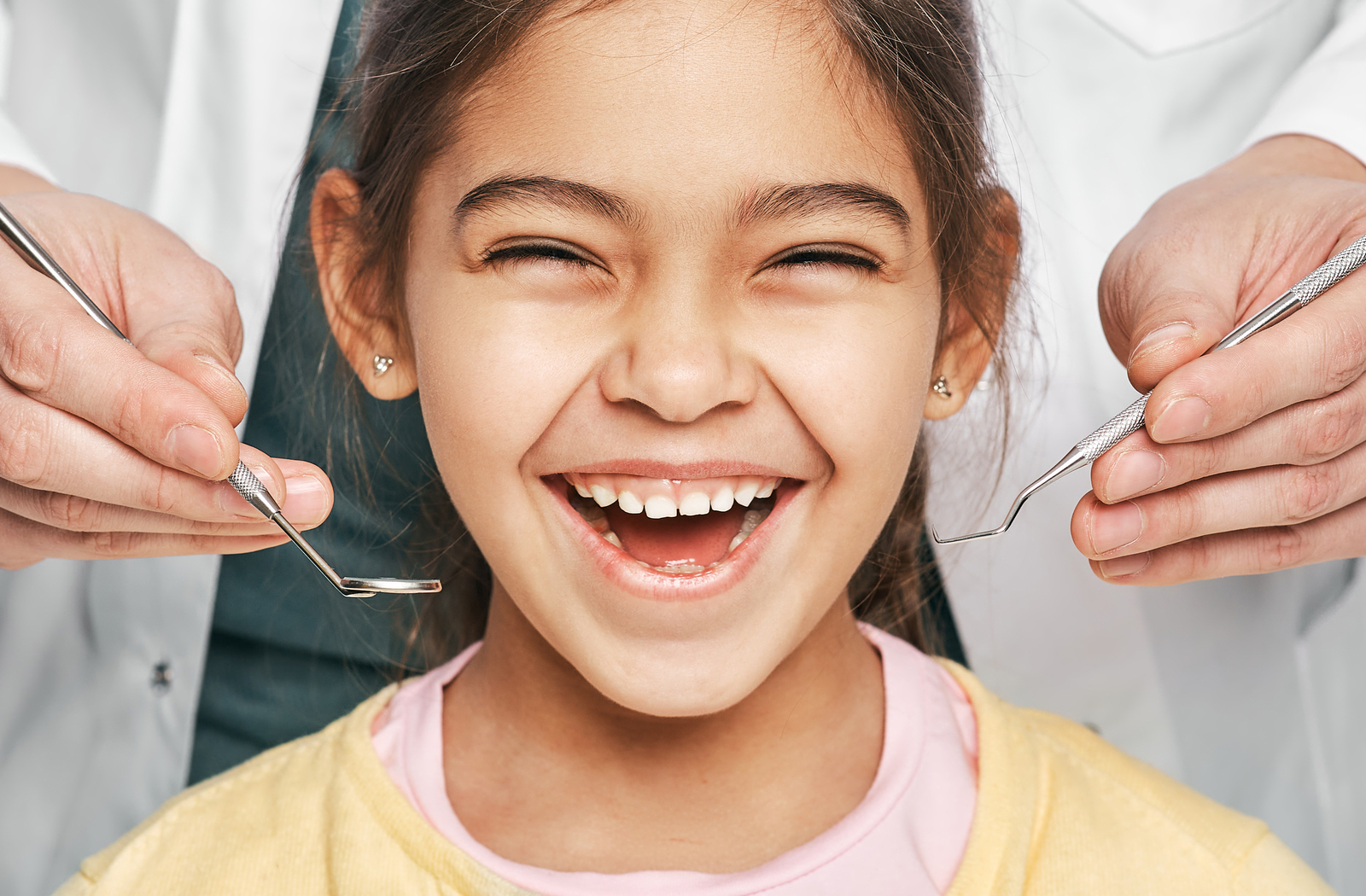Strong teeth are essential for chewing, speaking, and smiling. To keep your child’s teeth strong, it’s important to start good dental habits early. Regular visits to a dentist office near me along with brushing and flossing, visiting the dentist regularly, and getting enough fluoride are the best ways to protect teeth.
Why Is Cleaning Teeth Important?
Brushing and flossing remove plaque, a sticky film of bacteria that forms on teeth. Plaque can cause:
- Cavities: Holes in the teeth that get bigger over time if not treated.
- Gum disease: Irritation of the gums that can lead to soreness, bleeding, and even tooth loss.
How Can Kids Keep Their Teeth Clean?
Even before the first tooth appears, wipe your baby’s gums gently with a clean, damp cloth after each feeding.
- Under 3 years old: Brush twice a day for 2 minutes using a soft toothbrush with a tiny smear of fluoride toothpaste (the size of a grain of rice).
- Ages 3 and older: Brush twice a day for 2 minutes with a pea-sized amount of fluoride toothpaste. Floss once a day when teeth start touching.
- Ages 10 and older: Most children can brush and floss alone. Remind them to brush for 2 minutes twice a day and floss daily.
When Should Kids Visit the Dentist?
Children should see a dentist within 6 months of their first tooth appearing, or by their first birthday. Early visits help catch problems and get your child used to dental exams. As children grow, dental visits are usually scheduled every 3 months to once a year. Ask your dentist what works best for your child.
What Happens at Dentist Visits?
For young children, the dentist will do a short exam while the baby sits on your lap. Older children will get a thorough cleaning from a hygienist and a full exam. Dentists may also:
- Take X-rays to check for cavities
- Apply fluoride treatments to strengthen teeth
- Use dental sealants to protect teeth from decay
How to Ensure Your Child Gets Enough Fluoride
Fluoride strengthens tooth enamel and helps prevent cavities. To make sure your child gets enough:
- Check if your water has fluoride. If not, ask your dentist about supplements.
- Ask the dentist about fluoride treatments and the right schedule.
- When children can rinse and spit (around age 6), fluoride mouthwash may be added.
When to Call the Dentist
Contact a dentist if your child has tooth or gum pain, a broken tooth, dark or light spots, or a tooth falls out due to injury.
Other Tips for Healthy Teeth
- Introduce a cup at 6 months and wean off bottles by age 1.
- Avoid juice for babies under 12 months. Limit juice for older children and always serve in a cup at mealtime.
- Don’t let your child go to bed with bottles containing milk or juice.
- Limit sugary drinks and snacks, and brush teeth after consuming them.
- Keep your home and car smoke-free, as secondhand smoke can increase the risk of cavities.

